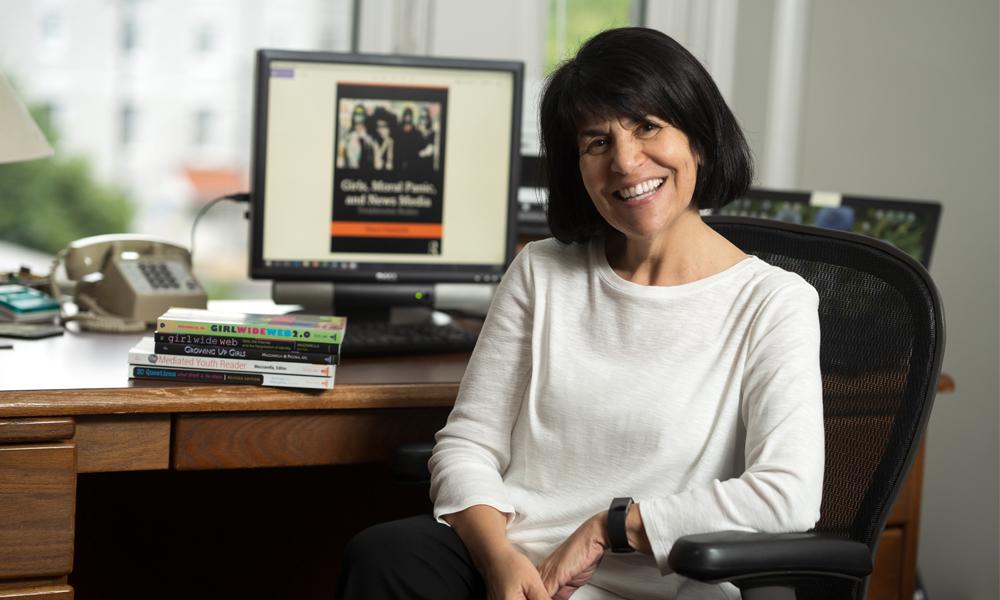Award-winning JMU professor researches girlhoods
College of Arts and Letters
SUMMARY: After years of studying the way adults shape and control public portrayals of girls, Sharon Mazzarella is ready to leave mainstream media behind in search of more authentic representations of girls—all girls.
Dr. Sharon Mazzarella, named the winner of the 2019 Provost’s Award for Excellence in Research and Scholarship, almost turned down her department’s nomination in February. I thought, ‘There’s no way,’” said Mazzarella, a professor of communication studies. The annual award honors one faculty member who has demonstrated significant achievement in research, scholarship, or creative work from a highly competitive pool of nominees across James Madison University.
Bridging the social sciences and the humanities, Mazzarella's research interrogates mediated representations of youth, or as Mazzarella says, how adults “talk” about young people, particularly girls. “I don't mean sit and have a conversation, but the public discourse."
To understand the public discourse, Mazzarella studies mainstream media—coverage of young people in newspaper articles, magazines, books and online sources. Her recently-published book by Routledge, “Girls, Moral Panic, and News Media: Troublesome Bodies” takes readers through a series of in-depth case studies to examine the role adults play in shaping public conversation about girls, which can lead to misrepresentations of girls.
“If you read newspaper articles, for example, you will rarely see girls quoted,” said Mazzarella. “[Journalists] will quote medical doctors, teachers, educators, other [researchers]… but they don’t necessarily go to quote young people to learn what their life is really like.”
In the rare cases that girls are interviewed, Mazzarella found that quotes are often cherry-picked to reinforce the author’s perspective of girls. “[Authors] pick the most salacious quotes, things that would be kind of frightening to adults,” said Mazzarella, “so the girls’ voices end up being turned around and used against them.”
Through her research, Mazzarella’s goal is to impact the public conversation about girls. She hopes that future journalists will interview girls themselves instead of relying solely on expert opinions. She also hopes the general public will become more critical when encountering stories about girls. “By critical, I don't mean negative,” said Mazzarella. “Critical means being mindful.”
One problem Mazzarella has found through her extensive studies is "girls of color, poor girls, working class girls, queer girls are often missing completely from the discourse.” Mazzarella says this omission constructs some girls as unworthy of discussing, an issue of inclusion she aims to address through the use of the term "girlhoods," plural. [Because] “there's no one singular girlhood.”
After years of studying the way adults shape and control public portrayals of girls, Mazzarella is ready to leave mainstream media behind in search of more authentic representations of girls—all girls.
“[I’ve realized I want to] start looking at alternative media or girls as cultural producers to see how that can impact the public discourse," said Mazzarella. "I think it’s time, as an academic, to actually listen to the voices of girls.”
This new research direction will require her to shift away from the media she has studied for the past 20 years. But for Mazzarella, addressing the issue of diversity in studies of girlhoods can’t wait.
